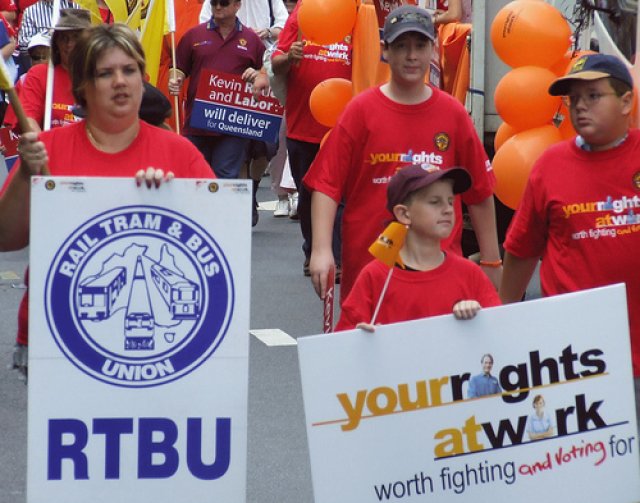
Elections in the Rail Tram and Bus Union (RTBU) are being held throughout Australia in the National and State branches in February. There are two main tickets contesting the national and NSW elections.
In NSW, the incumbent right-wing Labor leadership team is called Unity. It has failed to defend conditions and jobs against the unpopular Labor government's cuts and privatisations.
The Members Voice (MV) ticket is a broad united front of those who oppose the current leadership and advocate increased funding and staffing, and a clear strategy to reverse privatisation.
This is the first challenge to the incumbents since the 1980s.
With the Liberal Party certain to win the NSW state elections in March, huge cuts to the public sector are likely to follow.
The weapon the NSW Liberals have is the one used so effectively by Labor — government-implemented staff reviews that cannot be negotiated by unions.
MV has criticised Unity for failing to challenge this. For example, the right to negotiate this could have been enshrined in the latest Enterprise Bargaining Agreement (EBA).
Unity's record gets worse when we look at the outcome of the 2010 EBA negotiations.
In return for a 4% wage rise (which is below cost of living increases), Unity, together with management, rammed through trade-offs. They said further industrial action would result in the whole agreement having to be renegotiated from scratch.
The fine print of the EBA states that sick leave has to be accumulated during the year. The old provision of having 15 days automatically credited at the beginning of the year was lost.
It also included a provision allowing the sale of government assets, such as Martins Creek quarry (from where railway ballast comes).
MV is campaigning for wage rises to be tied to cost of living rises with no trade offs. MV also supports a campaign by all public sector unions, run democratically by a combined rank-and-file delegates committee, to oppose attacks on the public sector.